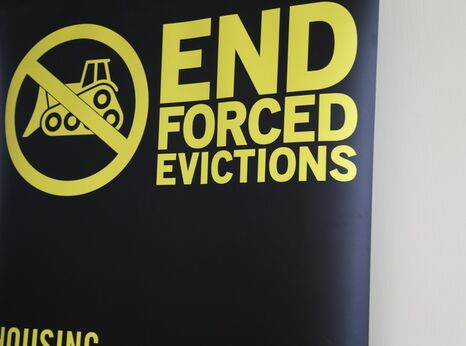Forced eviction kills child; 3,000 left homeless

The Nubian Community has experienced historical injustices linked to statelessness and land ownership. They were first settled by the British colonial government near Kisumu airport but later, after the expansion of the airport, they resettled in Kibos in 1938 and have been living there ever since. The ownership of Kibos has been challenged repeatedly, with Kenya Railways claiming ownership of the land and threatening to evict the community. The community successfully filed a petition under a Certificate of Urgency to seek a conservatory order preventing Kenya Railways from evicting them until ownership is ascertained in Environment and Land Court (ELC). The Conservatory Order was served to the Kenya Railways and County Commissioner (who tore it up) on 5 February, at 4:15 pm. At 5pm, the County Commissioner started marking Kibos homes with Xs. At 9pm the Kenya Power and Lightening Company cut off the main power to the whole settlement. By 10.30pm, police officers descended on the community, firing teargas into the homes of over 3,500 and a 83 year-old mosque. Excavators and other heavy equipment were used to bring down homes, the mosque and two nursery schools. As the authorities proceeded to demolish buildings, a child was crushed to her death while her mother cried for time to remove her from the house.
The County Commissioner oversaw the demolition of all buildings. Barely five days later, on 10 February, the Environment and Land Court of Kisumu summoned the Kenya Railways Corporation to show cause why they should not be held in contempt of court for ignoring the conservatory orders and for failing to appear in court. In a hearing held on 11 February, the Court upheld the status quo of the conservatory orders and granted the community rentry orders.
The forced evictions in Kibos were conducted less than a month after the Supreme Court of Kenya, on 11 January, made a definitive judgment on the right to housing. The landmark judgement states, under section 153, that, ”The right to housing in its base form (shelter) need not be predicated upon “title to land”. Indeed, it is the inability of many citizens to acquire private title to land, that condemns them to the indignity of “informal settlements”. Where the Government fails to provide accessible and adequate housing to all the people, the very least it must do, is to protect the rights and dignity of those in the informal settlements. The Courts are there to ensure that such protection is realized, otherwise these citizens, must forever, wander the corners of their country, in the grim reality of “the wretched of the earth”.